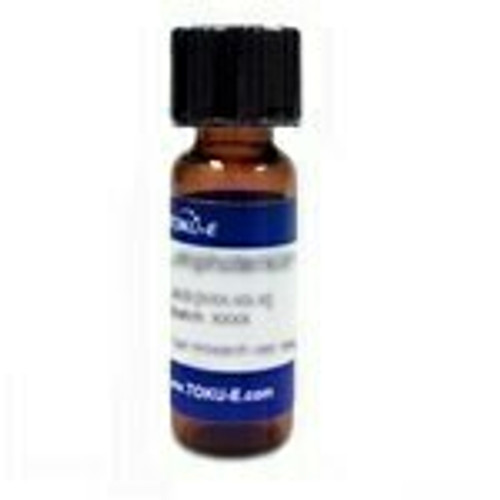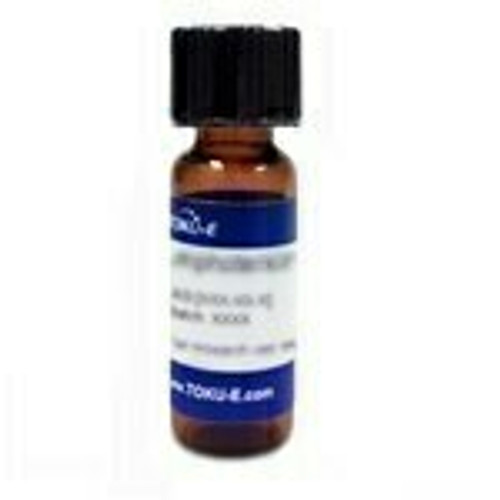Mycophenolic Acid is an antimetabolite and an active metabolite of Mycophenolate mofetil. It can inhibit DNA synthesis of T and B lymphocytes via selective inhibition of inosine monophosphate dehydrogenase. It also acts as an immunosuppressive agent commonly used solid-organ transplantation. As a selection agent, it is used for transfected animal cells expressing the E. coli gpt gene encoding xanthine-guanine phosphoribosyl transferase. Mycophenolic Acid is freely soluble in methanol but insoluble in water.
This product is considered a dangerous good. Quantities above 1 g may be subject to additional shipping fees. Please contact us for specific questions.
We also offer:
- Mycophenolic Acid ReadyMadeTM Solution (M121)
| Mechanism of Action | Mycophenolic Acid blocks inosine monophosphate dehydrogenase in the guanosine monophosphate pathway and suppresses cytokine-induced nitric oxide production. |
| Impurity Profile | Heavy Metals: ≤20ppm Total Impurities: ≤2.0% Individual Impurity: Not more than 0.5% |
| Cell culture applications | The effect of Mycophenolic Acid on human umbilical vein endothelial cells was investigated. The compound showed multifarious effects on endothelial cells including inhibition of ICAM-1 expression, attachment of neutrophils, secretion of IL-6, and angiogenesis, which may contribute to the efficacy of Mycophenolic Acid in treatment of vasculitis. |
| Cancer Applications |
Mycophenolic Acid acts as an inhibitor for inosine monophosphate dehydrogenase (IMPDH), an enzyme responsible for controlling the rate of guanine monophosphate synthesis. IMPDH is required for T-cell and B-cell growth and proliferation to a higher degree than other host cells. MPA has been reported to inhibit cancer cell proliferation and induces apoptosis in vitro and in vivo, such as multiple myeloma cells, HL-60 cells, lymphoma, Walker's carcinosarcoma, fliobasoma cells, pancreatic, lung, and colon cancer (Dun et al, 2013) however the signaling pathways underlying its activity are elusive. |
| Immunology Applications | MPA blocks T and B lymphocyte proliferation and clonal explansion, preventing the generation of cytotoxic T-calls and other effector T-cells. |
| References |
Benjanuwattra J, Chaiyawat P, Pruksakorn D, Koonrungsesomboon N (2020) Therapeutic potential and molecular mechanisms of Mycophenolic Acid as an anticancer agent. Eur J Pharmacol. PMID 32949604 de Jonge H, Naesens M, Kuypers DR (2009) New insights into the pharmacokinetics and pharmacodynamics of the calcineurin inhibitors and Mycophenolic Acid: Possible consequences for therapeutic drug monitoring in solid organ transplantation. Ther Drug Monit. 31(4):416-35. PMID Dun B et al (2013) Delineation of biological and molecular mechanisms underlying the diverse anticancer activities of mycophenolic acid. Int. J. Clin. Exp. Pathol. 6(12):2880-2886. PMID 24294374 Martinez B et al (2018) Sensitive rapid fluorescence polarization immunoassay for free Mycophenolic Acid determination in human serum and plasma. Anal. Chem. 90(8):5459-5465 Yanfei Huang, Zhihong Liu, Haidong Huang, Hao Liu, Leishi Li (2005) Effects of Mycophenolic Acid on endothelial cells. Int. Immunopharmacol. 5(6):1029-1039
|








